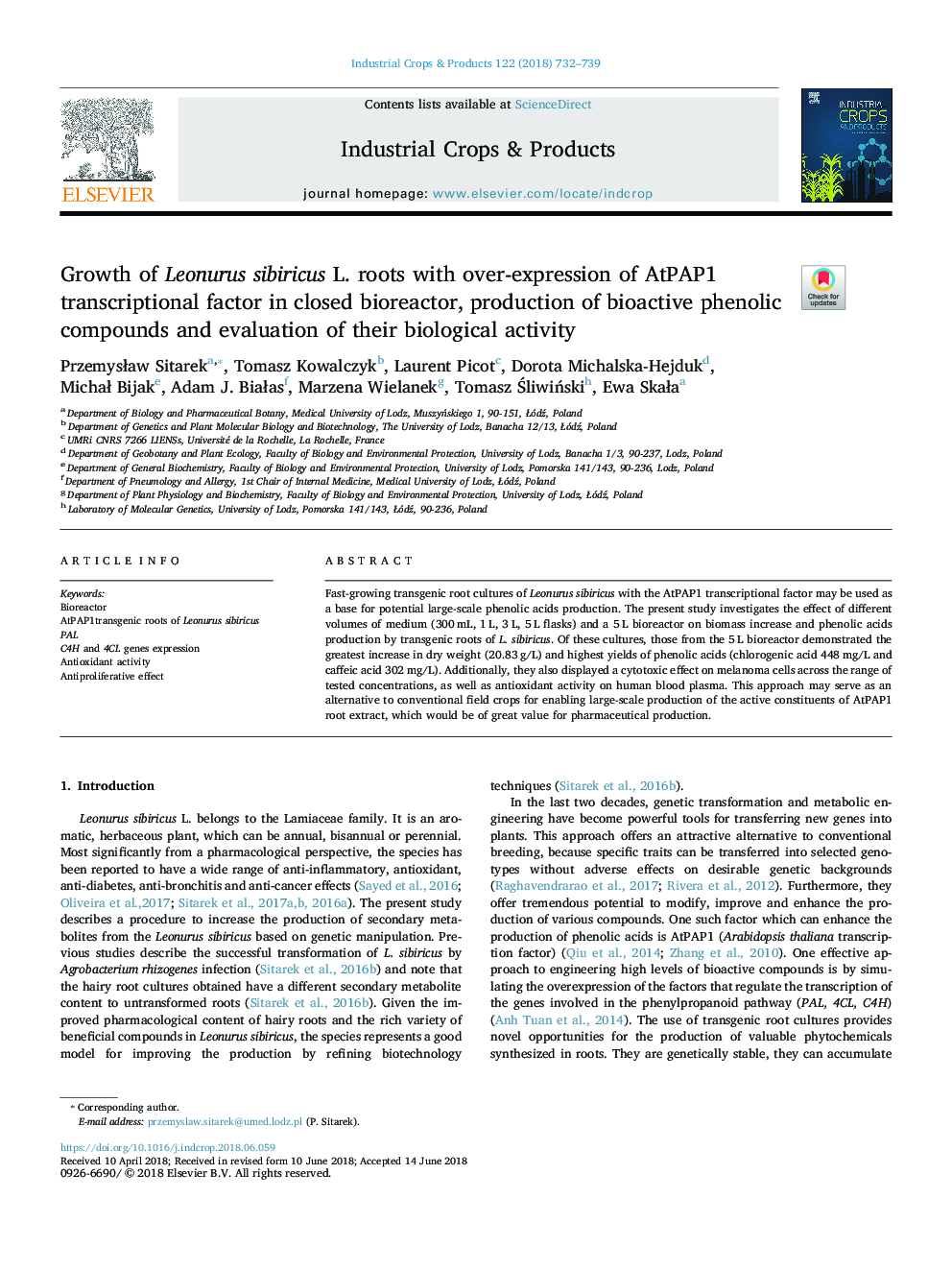| Article ID | Journal | Published Year | Pages | File Type |
|---|---|---|---|---|
| 8879698 | Industrial Crops and Products | 2018 | 8 Pages |
Abstract
Fast-growing transgenic root cultures of Leonurus sibiricus with the AtPAP1 transcriptional factor may be used as a base for potential large-scale phenolic acids production. The present study investigates the effect of different volumes of medium (300â¯mL, 1â¯L, 3â¯L, 5â¯L flasks) and a 5â¯L bioreactor on biomass increase and phenolic acids production by transgenic roots of L. sibiricus. Of these cultures, those from the 5â¯L bioreactor demonstrated the greatest increase in dry weight (20.83â¯g/L) and highest yields of phenolic acids (chlorogenic acid 448â¯mg/L and caffeic acid 302â¯mg/L). Additionally, they also displayed a cytotoxic effect on melanoma cells across the range of tested concentrations, as well as antioxidant activity on human blood plasma. This approach may serve as an alternative to conventional field crops for enabling large-scale production of the active constituents of AtPAP1 root extract, which would be of great value for pharmaceutical production.
Related Topics
Life Sciences
Agricultural and Biological Sciences
Agronomy and Crop Science
Authors
PrzemysÅaw Sitarek, Tomasz Kowalczyk, Laurent Picot, Dorota Michalska-Hejduk, MichaÅ Bijak, Adam J. BiaÅas, Marzena Wielanek, Tomasz ÅliwiÅski, Ewa SkaÅa,
